|
Thiamine – The Vitamin Cure For BeriBeriThiamine is also known as vitamin B1, and contains sulfur and a nitrogen group in the vitamin. The vitamin is part of the B complex of vitamins and also functions as a coenzyme as do the other B complex vitamins. This vitamin plays a major role in the metabolism of glucose.
Thiamine Molecule and Chemical Formula 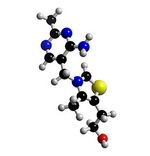
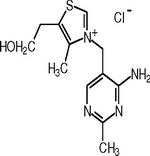
Dietary Recommendations The recommended dietary allowance (RDA) for men aged 19 years and older is 1.2 milligrams/day and for women aged 19 years and older is 1.1 milligrams/day. For women who are pregnant the RDA is 1.4 milligrams/day and for women who are lactating the RDA is 1.5 milligrams/day. Vitamin Sources The vitamin is found throughout the food supply, but most foods contain only small amounts of the vitamin. One of the richest sources of the vitamin is pork, with beans, peas, nuts, seeds, some types of fish and seafood also being good sources. Most of the vitamin in the diet comes from enriched or whole grain bread, pasta, rice and ready to eat cereals. Sources of the Vitamin 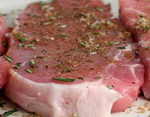
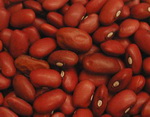
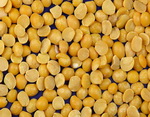
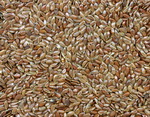
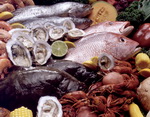
Vitamin Deficiency One of the well known diseases associated with thiamine deficiency is beriberi which is a disease that combined with profound muscle weakness and nerve destruction eventually leaves its victim unable to move. The deficiency results in those that obtain their primary energy from polished rice where the hull which is the major source of the vitamin is removed. Not getting enough of this vitamin has effects on the cardiovascular, muscular, nervous, and gastrointestinal systems which all rely on this vitamin to fuel their functions. This vitamin is crucial in the metabolism of glucose which is the brain and nervous system’s primary fuel, so a deficiency affects brain and nervous system functions, with symptoms such as weakness, irritability, headache, fatigue, and depression appearing within as little as 10 days of the deficiency. Another group that thiamine deficiency appears in is alcoholics. Alcohol contributes calories without contributing nutrients, and alcohol interferes with the absorption of vitamin B1 and other vitamins. Malnutrition induced from alcohol results in Wernicke-Korsakoff syndrome which is a vitamin B1 deficiency disease. The disease symptoms that include mental confusion, constant rapid eye movements or the eye muscles can be paralyzed and staggering. The elderly and the poor may also be deficient in this vitamin due to inadequate intake of nutrients or through eating nutrient poor foods. Vitamin Toxicity Since the kidneys excrete excess vitamin rapidly toxicity of the vitamin is unknown.
For other information on nutrition, and vitamins in particular some great references are: • Nutrition – Fourth Edition by Paul Insel, Don Ross, Kimberley McMahon, and Melissa Bernstein
Vitamins
|





